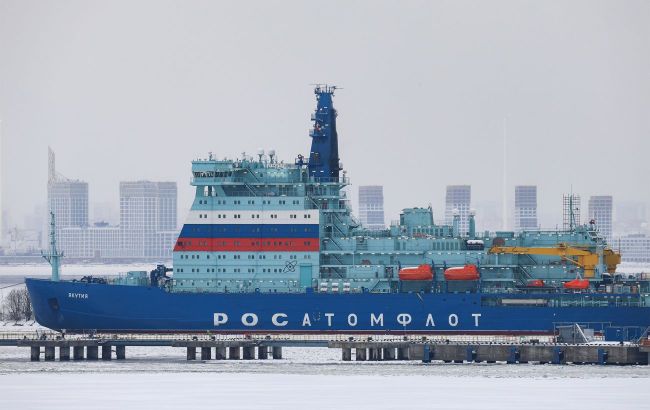US mulled Russian nuclear icebreakers for Alaska LNG projects - Media
 Photo: The US may use Russian nuclear icebreakers for gas projects in Alaska (Getty Images)
Photo: The US may use Russian nuclear icebreakers for gas projects in Alaska (Getty Images)
Ahead of the US-Russia summit in Alaska, the White House discussed the potential use of Russian nuclear icebreakers to support gas and LNG projects, Reuters reports.
The United States held internal talks about using Russian nuclear icebreakers to help develop gas and LNG projects in Alaska. Officials saw this as one of several potential deals to explore during the meeting between President Donald Trump and Russian dictator Vladimir Putin.
According to a Reuters source, the icebreaker plan was considered among White House officials as a potential agreement to pursue with Russia at the Alaska summit.
Russia currently operates the world's only fleet of nuclear icebreakers. These ships play a central role in keeping the Northern Sea Route open year-round. This route is strategically vital for global energy and trade flows.
Meanwhile, the Trump administration is pushing to transport gas from Alaska's remote northern regions to Asian customers.
Anonymous sources said that Trump proposed the $44 billion Alaska LNG project. The plan would deliver liquefied natural gas through an 800-mile pipeline from Alaska to Asian buyers. Trump sees it as a way to reduce their dependence on Russian LNG.
Another project targeting Asian markets is Qilak LNG, which aims to produce 4 million tons of LNG annually.
Qilak LNG founder Mead Treadwell said relying on icebreakers from any country approved by the US government would not be unusual for an American LNG project.
"But we haven't specifically asked for that," Treadwell clarified.
Sanctions against Russia
Recently, Rosmorport terminated a contract with the Onega Shipyard to build two innovative icebreakers, valued at 18.5 billion rubles.
The vessels were expected to run on diesel and liquefied gas and to break ice up to 1.5 meters thick.
The EU recently adopted its 18th sanctions package against Russia. Kaja Kallas, EU High Representative for Foreign Affairs and Security Policy, called it one of the strongest since the start of the full-scale war in Ukraine.
Estonia's Foreign Minister said Brussels has already started preparing the next sanctions package.

